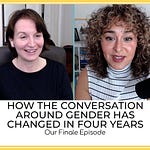Dr. Steve Levine is Clinical Professor of Psychiatry at Case Western Reserve University School of Medicine. He is the sole author of several books: Sex Is Not Simple in 1989 (translated to German in 1992 and reissued in English in 1997 as Solving Common Sexual Problems); Sexual Life: A clinician’s Guide in 1992; Sexuality in Mid-Life in 1998 and Demystifying Love: Plain Talk for the Mental Health Professional in 2006; Barriers to Loving: A Clinician’s Perspective in 2013; Psychotherapeutic Approaches to Sexual Problems: An Essential Guide for Mental Health Professionals in 2020.
Dr. Levine is also the Senior Editor of the first (2003), second (2010), and third (2016) editions of the Handbook of Clinical Sexuality for Mental Health Professionals. He has been teaching, providing clinical care, and writing since 1973 and has generated original research, invited papers, commentaries, chapters, and book reviews. He has served as a journal manuscript and book prospectus reviewer for many years. He was co-director of the Center for Marital and Sexual Health/Levine, Risen & Associates, Inc. in Beachwood, Ohio from 1992-2017. He and two colleagues received a lifetime achievement Masters and Johnson’s Award from the Society for Sex Therapy and Research in March 2005. He was given his Department of Psychiatry’s Hall of Fame Award in 2021.
In our conversation, Stephen is posed the question: Why are we so prone to reductionism in our thinking about transition and gender? He explains the “chain of trust” in medical school training and academia and how it can lead to a broken system and low-quality procedures being used on a massive scale. Additionally, Dr. Levine’s deep perspective on love, intimacy, and what makes us human reflects the great wisdom he has gained from over fifty years working as a psychiatrist.
Links:
Solving Common Sexual Problems (1997), by Stephen Levine
Sexual Life: A Clinician’s Guide (1992), by Stephen Levine
Sexuality in Mid-Life (1998), by Stephen Levine
Demystifying Love: Plain Talk for the Mental Health Professional (2006), by Stephen Levine
Barriers to Loving: A Clinician’s Perspective (2013), by Stephen Levine
Psychotherapeutic Approaches to Sexual Problems: An Essential Guide for Mental Health Professionals (2020), by Stephen Levine
Extended Notes
Stephen was first introduced into this field by a suicidal man who wanted to become a woman.
Despite working with this person for a number of years, she later did commit suicide.
Sixty-three percent of teenagers now identify as a non-binary person.
It seems now that if you claim a trans identity, your childhood, your backstory, is totally irrelevant.
The influences of the past will always infiltrate the present. This is a basic human characteristic.
Stephen noticed that his profession avoided the concept of love in the late ’80s, which is a big part of the human experience.
A lot of people in his profession didn’t want to talk about the disappointments in love.
What’s at stake here? It’s not only the trans teenager’s future, but their parent’s future, their siblings' future, and their physical future.
Gender dysphoria arises within a family.
“I’m finally going to be authentic!” is a lie within itself.
When Stephen was introduced to the medical field, he realized that facts and understanding are actually changeable events.
The current methods of transitioning aren’t ideal. So, how do you increase the chances of success when transitioning?
Stephen explains the definition of a disease.
There are five assumptions affirmative care doctors make to try to save a potential suicide risk and these assumptions are harmful:
1. That it’s biological.
2. That it’s fixed for life.
3. That psychotherapeutic interventions are useless.
4. That transition will diminish suicides.
5. That trans people’s functioning in the world will be improved.
So, what can parents, doctors, and gender-questioning teens do?
There’s a lot of evidence to say that people who have transitioned live about 20 years less than people who don’t transition.
What does it mean to be human? Stephen dives into why we’re ever-changing and our thoughts and our fears will also naturally change.
Stephen examines the prevalence of substance abuse in transgendered children.
We need to be able to speak honestly about what’s known and what’s not known.
This podcast is sponsored by ReIME and Genspect. Visit Rethinkime.org and Genspect.org to learn more.
For more about our show: Linktr.ee/WiderLensPod











